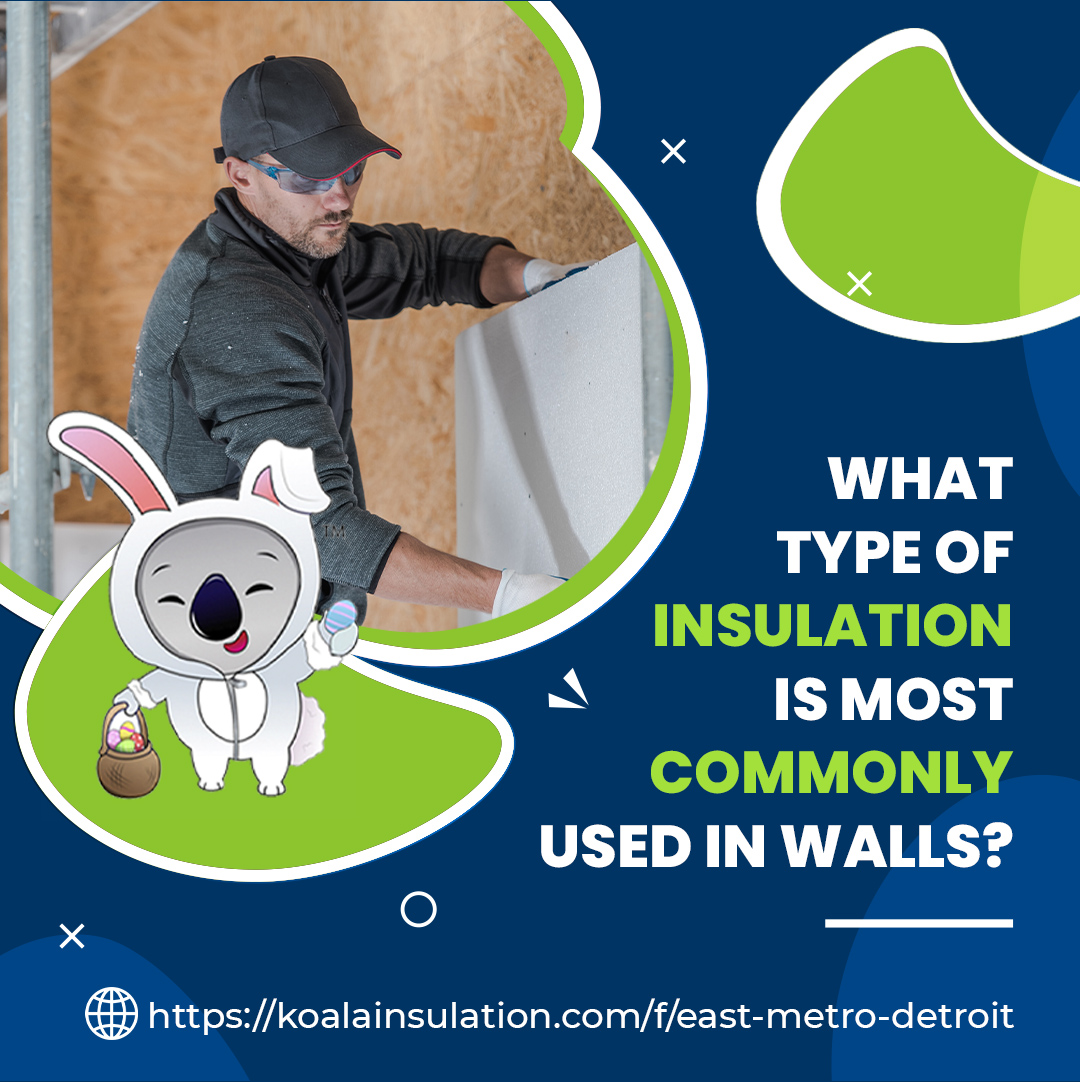What type of insulation is most commonly used in walls?

Insulation is an essential element in constructing any structure because of its ability to control the temperature, save energy, and lessen the transmission of noise. Insulation is especially crucial in walls, which can be significant conduits for heat transfer in both directions. Nevertheless, because there are so many kinds of insulation, it can take time to determine which suits your requirements. Today's post will discuss the type of wall insulation used most frequently and why it is so widely employed.
Types of Wall Insulation
Insulation made of fiberglass is the type of material that is most frequently utilized in wall construction. It is commonly installed in batts or rolls between wall studs or loose-fill form and blown into walls. It is manufactured from spun glass fibers and has a white appearance. The widespread use of fiberglass insulation can be traced back to several different contributors.
Fiber Glass Insulation
To begin, fiberglass insulation is available at a reasonable price. Because it is one of the lowest-cost insulation solutions, homeowners with a limited budget frequently use this material. The low cost of fiberglass insulation can be attributed to two factors: the easy availability of the raw materials required for its production and the effectiveness of the manufacturing process itself.
Second, the installation of fiberglass insulation is a simple process. It can be cut to fit tightly between wall studs or blasted into wall cavities using specialized equipment. All of these options are available. Due to the convenience with which it can be installed, homeowners do not need to employ the services of a specialist to put fiberglass insulation in their homes.
Finally, the R-value of insulation made of fiberglass is very high. The R-value of insulation measures its ability to resist heat flow; a greater R-value indicates that the insulation is of higher quality. Compared to other insulation types, the R-value of fiberglass insulation is approximately 3.0 per inch, making it one of the highest values available. Because of its high R-value, fiberglass insulation can provide an outstanding level of thermal insulation in walls, reducing energy consumption and associated expenditures.
The fourth benefit is that fiberglass insulation cannot catch fire. In the event of a fire, fiberglass insulation will not catch fire or spread flames, contrary to the behavior of several other forms of insulation. Because it cannot catch fire, fiberglass insulation is a far more secure choice for homeowners.
Last but not least, insulation made of fiberglass does not corrode or decompose over time. Even after decades of usage, it will not deteriorate because it comprises inert materials that do not break down or degrade. Because of its durability, fiberglass insulation can continue to deliver dependable insulating performance for a significant amount of time.
Although fiberglass insulation is the type of wall insulation used most frequently, it is not the only alternative available. Cellulose, spray foam, and mineral wool are some of the other types of insulation that can be found in wall construction.
Cellulose Insulation
With specialized machinery, recycled paper products make cellulose insulation, which is then blown into wall cavities to insulate them. The R-value of this material is approximately 3.7 per inch, making it superior to fiberglass insulation in this regard. Cellulose insulation, on the other hand, may come at a higher cost and may be trickier to install appropriately than fiberglass insulation.
Spray foam insulation
Insulation that is applied in the form of spray foam is a more recent development in the field of insulation technology. It is manufactured using a two-component mixture of chemicals that, when combined, generate a foam that swells and then solidifies. The R-value of spray foam insulation is around 6.5 inches per inch, which translates to excellent insulation performance. However, spray foam insulation is more expensive than other types of insulation, and a trained professional must install it.
Mineral Wool Insulation
Mineral wool insulation can either come in the shape of batts or loose-fill and is produced by spinning natural rock wool or slag wool into individual fibers. An R-value of around 3.3 per inch is achieved, which is comparable to that of fiberglass insulation. The insulation made of mineral wool is more resistant to fire than the insulation made of fiberglass, making it a more prudent choice for homes. On the other hand, mineral wool insulation is likely to be more expensive than fiberglass insulation, and it may be more challenging to locate in certain regions.
In conclusion, fiberglass insulation is utilized most frequently in walls because it is inexpensive, simple to install, possesses a high R-value, is not combustible, and lasts for a long time. The availability of other types of insulation, which may come at a higher cost or require more effort to install, contributes to the widespread preference for fiberglass insulation as the material of choice among homeowners. Check Out Koala Insulation now!
Find Your Location


Get a quote


